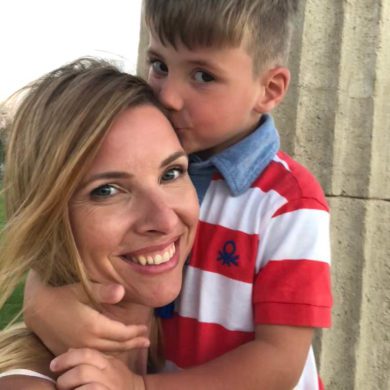I am currently writing a story about distraction – this very one, in fact – which is clearly why I have spent the last 20-odd minutes considering whether I need a particularly expensive bronzer, and buying a book on Kindle, reading three stories on the Daily Mail and logging in to check my frequent flier account because now, what with global travel lockdowns, is obviously the moment to fret about these things.
Distraction and I, we are very, very old foes. For as long as I can remember, I have been locked in a battle with my highly distractible brain. There is a certain painful irony that my chosen profession – freelance writer – requires lengthy, untrammelled stretches of attention not to mention the ability to meet regular deadlines.
As my friends and family (not to mention every editor I’ve ever worked with) can attest, I am terrible at returning phone calls and responding to text messages. I habitually struggle to finish books, TV shows and, er, work. (To wit: This story is already four five days late.)
But with the rise of coronavirus, my ability to concentrate has grown even worse, my brain flicking between thoughts in the frenzied manner of a teenager who has been mainlining Red Bull and ennui.
My brain flicks between thoughts in the frenzied manner of a teenager who has been mainlining Red Bull and ennui
And I’m not the only one.
Around the world people are reporting an inability to stay focused, and a tendency to be forgetful and anxious. It’s no wonder, says Dr Glen Hosking, the director of the Victoria University Psychology Clinic, who points out that the pandemic has shifted the “foundations” of our life over the past few months, and thus, too, our natural ability to stay on-task has also plummeted.
“For a lot of people, their regular routines have been disrupted. Wake-up times and sleep times are interrupted. People aren’t able to exercise in the way that they have previously. If people are working, they’re doing it remotely in most cases.”
The undercurrent of stress and anxiety is also affecting concentration levels, he says.
Why? In times of stress, your brain’s prefrontal cortex, which manages “higher functions” like critical thinking, shuts down, allowing the more primitive parts of your brain to deal with immediate threats.
In short, it’s not you, it’s the pandemic.
Its not you, it’s the pandemic
Of course, even before coronavirus, distraction was a growing issue. Over the past 15 years searches for the phrase “how to focus” have quadrupled, and there has been an explosion in apps and self-help books aimed AT focusing our attention.
One of these books, Indistractable, is written by Nir Eyal, an author and expert in consumer psychology, who previously wrote Hooked, a guide to designing addictive technology.
In Indistractable he describes clarity and concentration as a kind of ‘super power’: “In an age of increased automation, the most sought-after jobs are those that require creative problem-solving, novel solutions and the kind of human ingenuity that comes from focusing deeply on the task at hand.”
In an age of increased automation, the most sought-after jobs are those that require the kind of human ingenuity that comes from focusing deeply on the task at hand.
And the way to develop these superpowers of concentration? Eyal says it comes down to training yourself to recognise the signs of discomfort that precede distraction and realising that distraction is the brain’s way of avoiding pain.
“A common problem I have while writing is the urge to google something. It’s easy to justify this bad habit as ‘doing research’ but deep down I know it’s often just a diversion from difficult work,” says Eyal.
He recommends being especially aware of “liminal moments” between tasks when you’re likely to be distracted (for example, when a web page is loading) and trying to focus on the broader reasons you’re trying to accomplish a task (such as personal fulfilment).
He also advises “timeboxing” – or obsessively scheduling your day – making sure to factor in time for relationships and self-care, and recommends reducing work interruptions and technological distractions, like email alerts. “The more we respond to external triggers, the more we train our brain in a never-ending stimulus-response loop. We condition ourselves to respond instantly.”
I can relate, and as I read Eyal’s book, I realised I’ve been inadvertently following some of his advice for years. Here are the practical tips that have (mostly) worked for me.
Mute Distractions
From hard-fought personal experience, headphones are your greatest asset. Find whatever works for you and plug in. Not only does it work to block out the noise of partners, children and neighbours who have decided this is the moment to lovingly use their leaf blower for two hours, this habit has had a sort of Pavlovian response on my struggling brain. When the headphones go on, it is time to work.
Switch Off
It’s time to kill alerts. Totally and utterly. Use the Do Not Disturb function on your phone and make sure that you do not have iMessage, WhatsApp, Messenger or anything similar open on your computer. Also, put your phone behind you so that when the screen flashes with alerts, even if they are on silent they do not derail you. BE RUTHLESS.
Short To-Do lists
Write a to do list with only three things on it. Only three. So long as they are manageable, snackable tasks (ie not, “write powerful first novel”) even my ricocheting brain can get them down. This should not just be for work-related tasks – I put responding to messages, paying bills, washing my sheets etc on this.
The power of the to-do list also means that when I look up from an extended Daily Mail session, bleary eyed and having absolutely forgotten what I was meant to be doing, I look at said list and know exactly where to start. If you manage to get your three things done (huzzah! All the gold stars for you!) then write another one.
Be kind
Perhaps the biggest pointer I can give you is this: Do not beat yourself up about this. If you get stuck in a cycle of self-recrimination you will simply waste time and precious mental energy.
Here is one last, nice, science fact. After times of stress are over, our prefrontal cortex starts to repair and our attention spans return to normal. This too shall pass, even for our distractible, frustrating brains.













No Comments